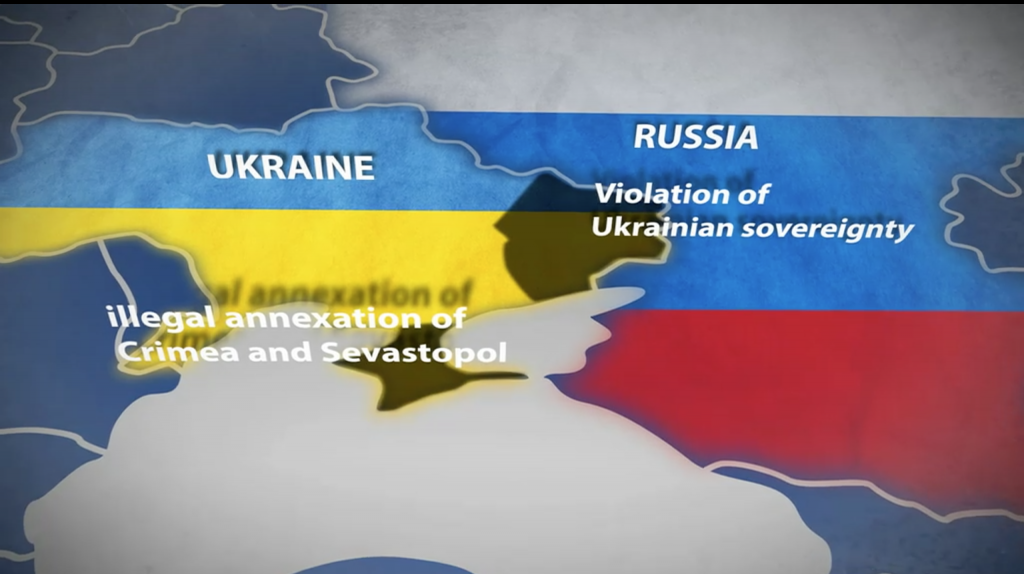The following is the overview of the EU restrictive measures introduced against Russia in response to the crisis in Ukraine, originally published by the European Council.
Since March 2014, the EU has progressively imposed restrictive measures against Russia. The measures were adopted in response to the illegal annexation of Crimea and the deliberate destabilisation of Ukraine.
The EU imposes different types of restrictive measures:
- diplomatic measures
- individual restrictive measures (asset freeze and travel restrictions)
- restrictions on economic relations with Crimea and Sevastopol
- economic sanctions
- restrictions on economic cooperation
Below you can find more information on each type of restrictive measures.
Diplomatic measures
In 2014, the EU-Russia summit was cancelled and EU member states decided not to hold regular bilateral summits. Bilateral talks with Russia on visa matters as well as on the new agreement between the EU and Russia were suspended.
Instead of the G8 summit in Sochi, a G7 meeting was held in Brussels on 4-5 June 2014. Since then, meetings have continued within the G7 process.
EU countries also supported the suspension of negotiations over Russia’s joining the Organisation for Economic Co-operation and Development (OECD) and the International Energy Agency (IEA).
Individual restrictive measures
Asset freeze and travel restrictions
153 people and 40 entities are subject to an asset freeze and a travel ban because their actions undermined Ukraine’s territorial integrity, sovereignty and independence.
The measures were introduced in March 2014. They were last extended in September 2017 until 15 March 2017.
Misappropriation of Ukrainian state funds
In March 2014, the Council decided to freeze the assets of individuals responsible for the misappropriation of Ukrainian state funds. These measures were last extended in March 2017 until 6 March 2018.
Restrictions on economic relations with Crimea and Sevastopol
The Council adopted restrictive measures in response to the illegal annexation of Crimea and Sevastopol by the Russian Federation.
The measures apply to EU persons and EU based companies. They are limited to the territory of Crimea and Sevastopol.
These measures include:
- an import ban on goods from Crimea and Sevastopol
- restrictions on trade and investment related to certain economic sectors and infrastructure projects
- a prohibition to supply tourism services in Crimea or Sevastopol
- an export ban for certain goods and technologies
On 19 June 2017, the Council extended these measures until 23 June 2018.
Economic sanctions targeting exchanges with Russia in specific economic sectors
In July and September 2014, the EU imposed economic sanctions targeting exchanges with Russia in specific economic sectors.
In March 2015, EU leaders decided to align the existing sanctions regime to the complete implementation of the Minsk agreements, foreseen for the end of December 2015. Since this did not happen, the Council extended economic sanctions until 31 July 2016.
The economic sanctions were prolonged for 6 months successively on 1 July 2016, 19 December 2016, and on 28 June 2017, each time following an assessment of the Minsk agreements implementation. The economic sanctions are currently extended until 31 January 2018.
These restrictive measures:
- limit access to EU primary and secondary capital markets for certain Russian banks and companies
- impose an export and import ban on trade in arms
- establish an export ban for dual-use goods for military use or military end users in Russia
- curtail Russian access to certain sensitive technologies and services that can be used for oil production and exploration
Measures concerning economic cooperation
Restrictions on economic cooperation were introduced by EU leaders in July 2014:
- the EIB was requested to suspend the signature of new financing operations in the Russian Federation
- EU member states agreed to coordinate their positions within the European Bank for Reconstruction and Development (EBRD) Board of Directors with a view to also suspend the financing of new operations
- the implementation of EU bilateral and regional cooperation programmes with Russia was re-assessed and certain programmes suspended


